What is LOG ransomware?
LOG ransomware can restrict access to multiple files that are located on a Windows computer. The malevolent software belongs to the infamous Crysis/Dharma category, which is well-known for producing akin malwarees. As well as other infections of this class, it encrypts photos, video files, documents, archives, databases, and other files on local and networked drives. Afterward, the victim is suggested to pay a fine to obtain files back. However, we regardless don’t suggest you do this, as it can lead to a trick or a second malicious software breach. Instead, you can observe this instruction that explains in detail how to fully delete LOG ransomware and signifies various methods to decode .LOG files.
As we said former, the harmful software touches statistics in such a way so you won’t be capable of opening files alongside .Id-xxxxxxxx..LOG add-on unless they are restored. Here, LOG ransomware displays a pop-up window and creates FILES ENCRYPTED.txt file. Cybercriminals push users to contact them via email to learn the penalty number and work out the problem promptly. As common, cybercriminals recommend free-of-charge decryption of different files to mean that they can desperately decode the victim’s files. Typically, such malware utilities enchipher facts cautiously ample so that you have no alternatives but to buy decryption programs from cybercriminals. Normal backups shall recover you these kinds of concerns. It is worth mentioning that the files stay enchiphered even after the uninstallation of the ransomware, its elimination merely blocks further encoding.
We firmly advise not to assent in bundles with their requirements as there are no warranty that you will get your files when the transaction transpires. On the contradictory, there is a large endanger of being tricked and merely dropped along with little. Of course, they argue quite the opposite, that it is apparently not in their interests to fool you. Believe for on your own, why need to they transmit you the key, if they have earlier gotten a fine from you? The only trustworthy way to fix the matter is to uninstall LOG ransomware from the machine through relevant application in order to halt the bad motions of the malicious virus and then repair your details from the backup.
At the final step of the threat stage, this ransomware may terminate all shadow volumes on your device. After that, you shall not be capable of carrying out the usual process for fetching your encoded details through these kinds of shadow volumes. There exists two solutions to get rid of LOG ransomware and decrypt your data. The at the beginning is to employ an automated elimination software. This technique is handy even for not experienced users because the uninstallation software could remove all situations of this infection in just several clicks. The moment is to employ our by hand deletion instructions. This is a much more difficult way that calls for exclusive machine capabilities.
How LOG ransomware gains on my pc?
Cybercriminals use different approaches to spread the malware software to the target system. Ransomware malware may infiltrate victims’ systems etc. than in one or two approaches, in the majority of situations, cryptoviral deception breach is done together with the following ways:
Warning, multiple anti-virus scanners have detected possible malware in LOG ransomware.
| Anti-Virus Software | Version | Detection |
|---|---|---|
| Kingsoft AntiVirus | 2013.4.9.267 | Win32.Troj.Generic.a.(kcloud) |
| Dr.Web | Adware.Searcher.2467 | |
| VIPRE Antivirus | 22702 | Wajam (fs) |
| McAfee-GW-Edition | 2013 | Win32.Application.OptimizerPro.E |
| VIPRE Antivirus | 22224 | MalSign.Generic |
| ESET-NOD32 | 8894 | Win32/Wajam.A |
| Baidu-International | 3.5.1.41473 | Trojan.Win32.Agent.peo |
| NANO AntiVirus | 0.26.0.55366 | Trojan.Win32.Searcher.bpjlwd |
| Tencent | 1.0.0.1 | Win32.Trojan.Bprotector.Wlfh |
| McAfee | 5.600.0.1067 | Win32.Application.OptimizerPro.E |
| K7 AntiVirus | 9.179.12403 | Unwanted-Program ( 00454f261 ) |
| Malwarebytes | v2013.10.29.10 | PUP.Optional.MalSign.Generic |
| Malwarebytes | 1.75.0.1 | PUP.Optional.Wajam.A |
LOG ransomware Behavior
- Common LOG ransomware behavior and some other text emplaining som info related to behavior
- LOG ransomware Deactivates Installed Security Software.
- Steals or uses your Confidential Data
- Slows internet connection
- Distributes itself through pay-per-install or is bundled with third-party software.
- Changes user's homepage
- LOG ransomware Shows commercial adverts
- Integrates into the web browser via the LOG ransomware browser extension
LOG ransomware effected Windows OS versions
- Windows 10
- Windows 8
- Windows 7
- Windows Vista
- Windows XP
LOG ransomware Geography
Eliminate LOG ransomware from Windows
Delete LOG ransomware from Windows XP:
- Click on Start to open the menu.
- Select Control Panel and go to Add or Remove Programs.
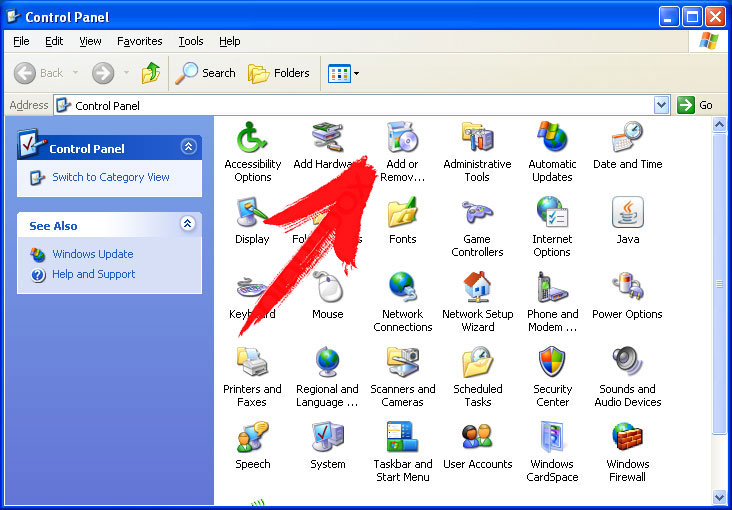
- Choose and remove the unwanted program.
Remove LOG ransomware from your Windows 7 and Vista:
- Open Start menu and select Control Panel.

- Move to Uninstall a program
- Right-click on the unwanted app and pick Uninstall.
Erase LOG ransomware from Windows 8 and 8.1:
- Right-click on the lower-left corner and select Control Panel.
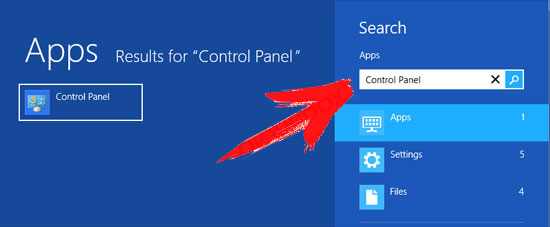
- Choose Uninstall a program and right-click on the unwanted app.
- Click Uninstall .
Delete LOG ransomware from Your Browsers
LOG ransomware Removal from Internet Explorer
- Click on the Gear icon and select Internet Options.
- Go to Advanced tab and click Reset.
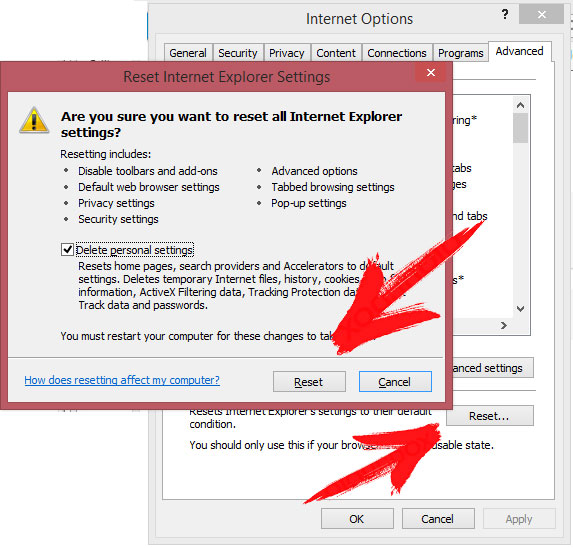
- Check Delete personal settings and click Reset again.
- Click Close and select OK.
- Go back to the Gear icon, pick Manage add-ons → Toolbars and Extensions, and delete unwanted extensions.
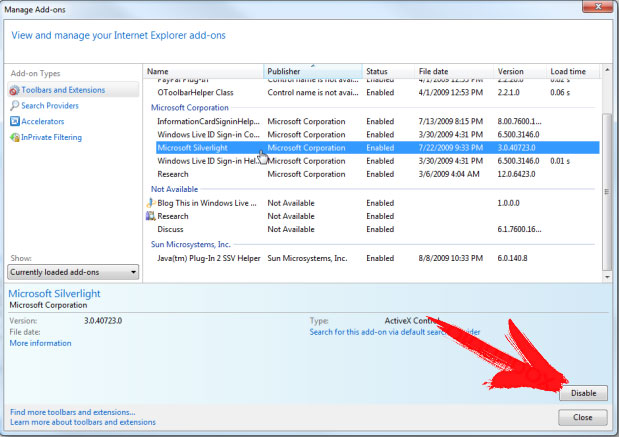
- Go to Search Providers and choose a new default search engine
Erase LOG ransomware from Mozilla Firefox
- Enter „about:addons“ into the URL field.
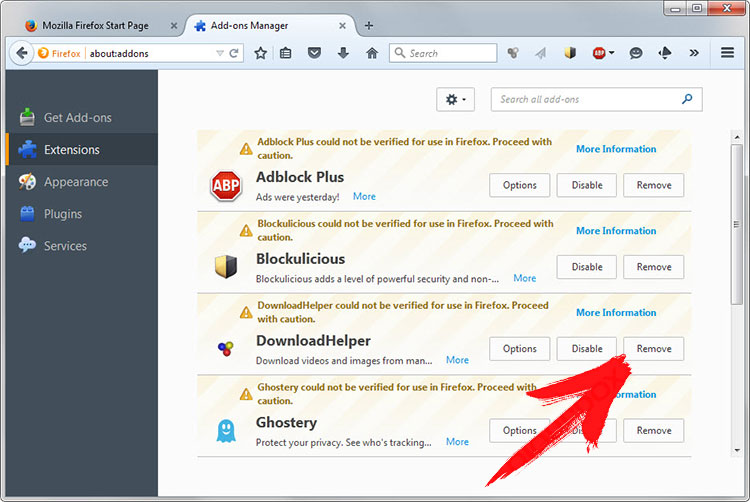
- Go to Extensions and delete suspicious browser extensions
- Click on the menu, click the question mark and open Firefox Help. Click on the Refresh Firefox button and select Refresh Firefox to confirm.
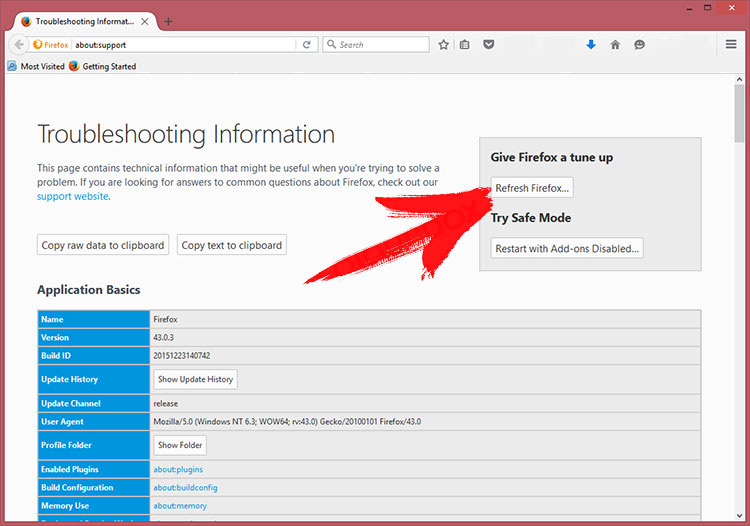
Terminate LOG ransomware from Chrome
- Type in „chrome://extensions“ into the URL field and tap Enter.
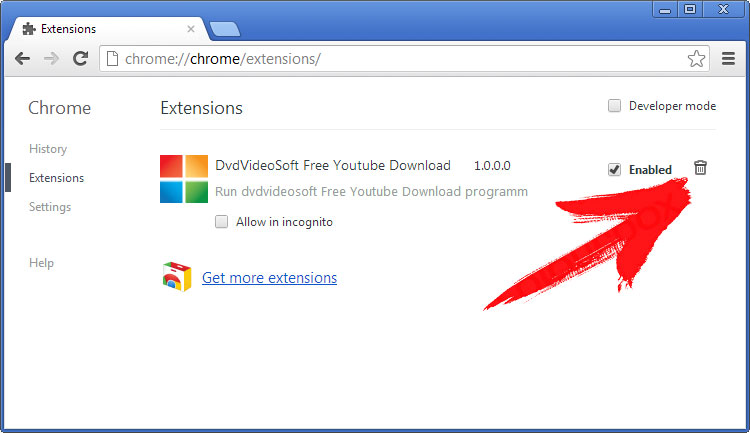
- Terminate unreliable browser extensions
- Restart Google Chrome.
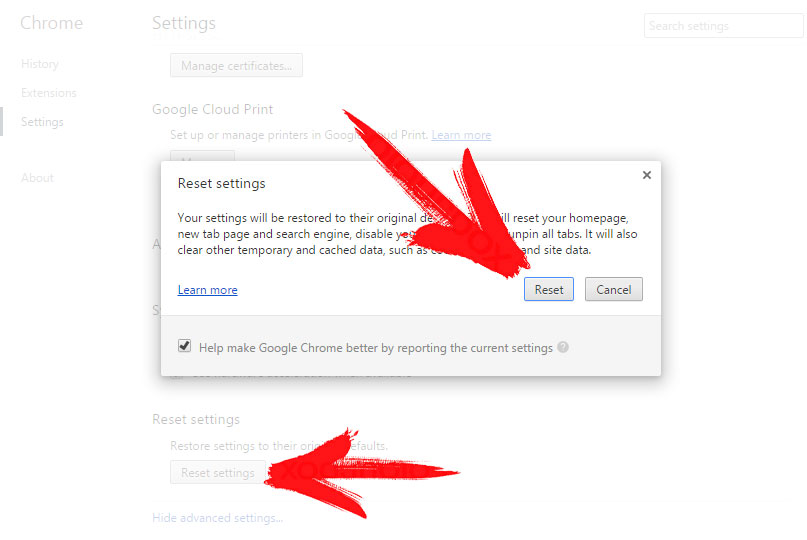
- Open Chrome menu, click Settings → Show advanced settings, select Reset browser settings, and click Reset (optional).